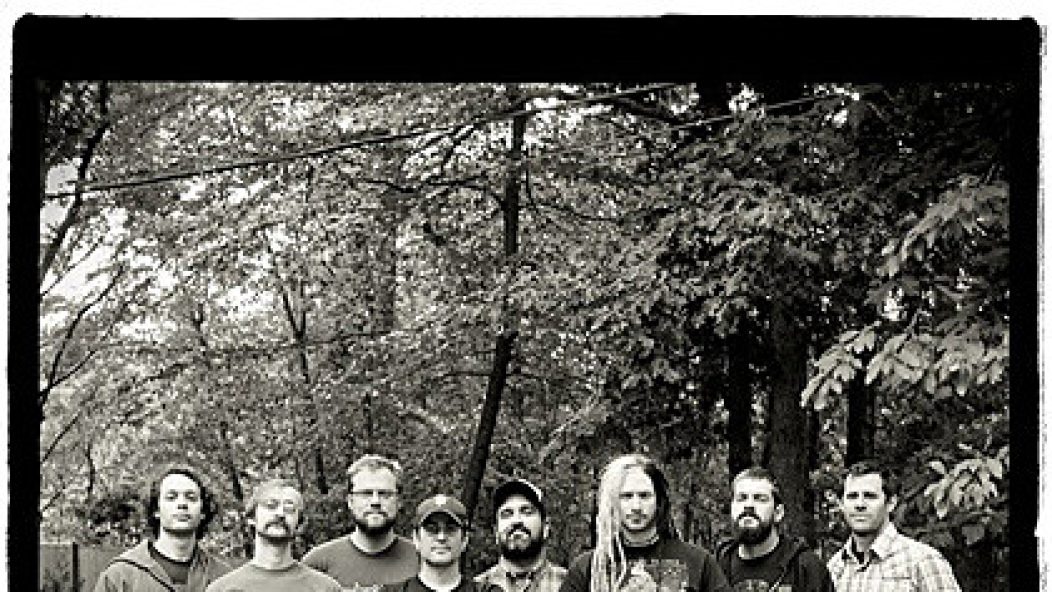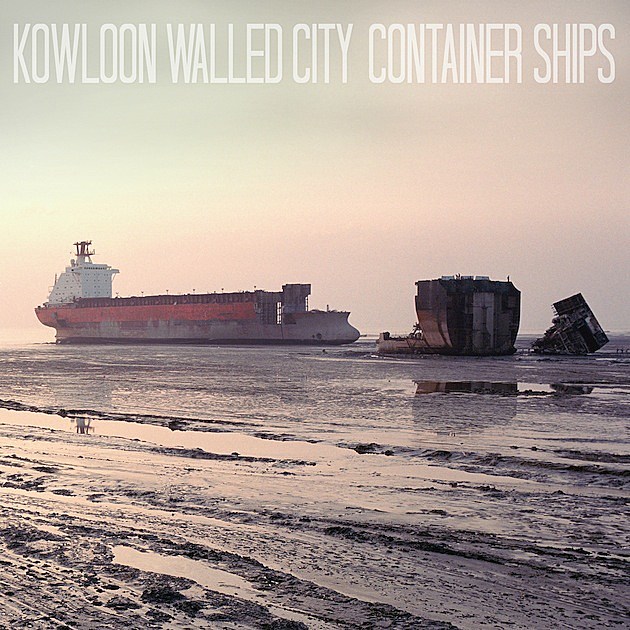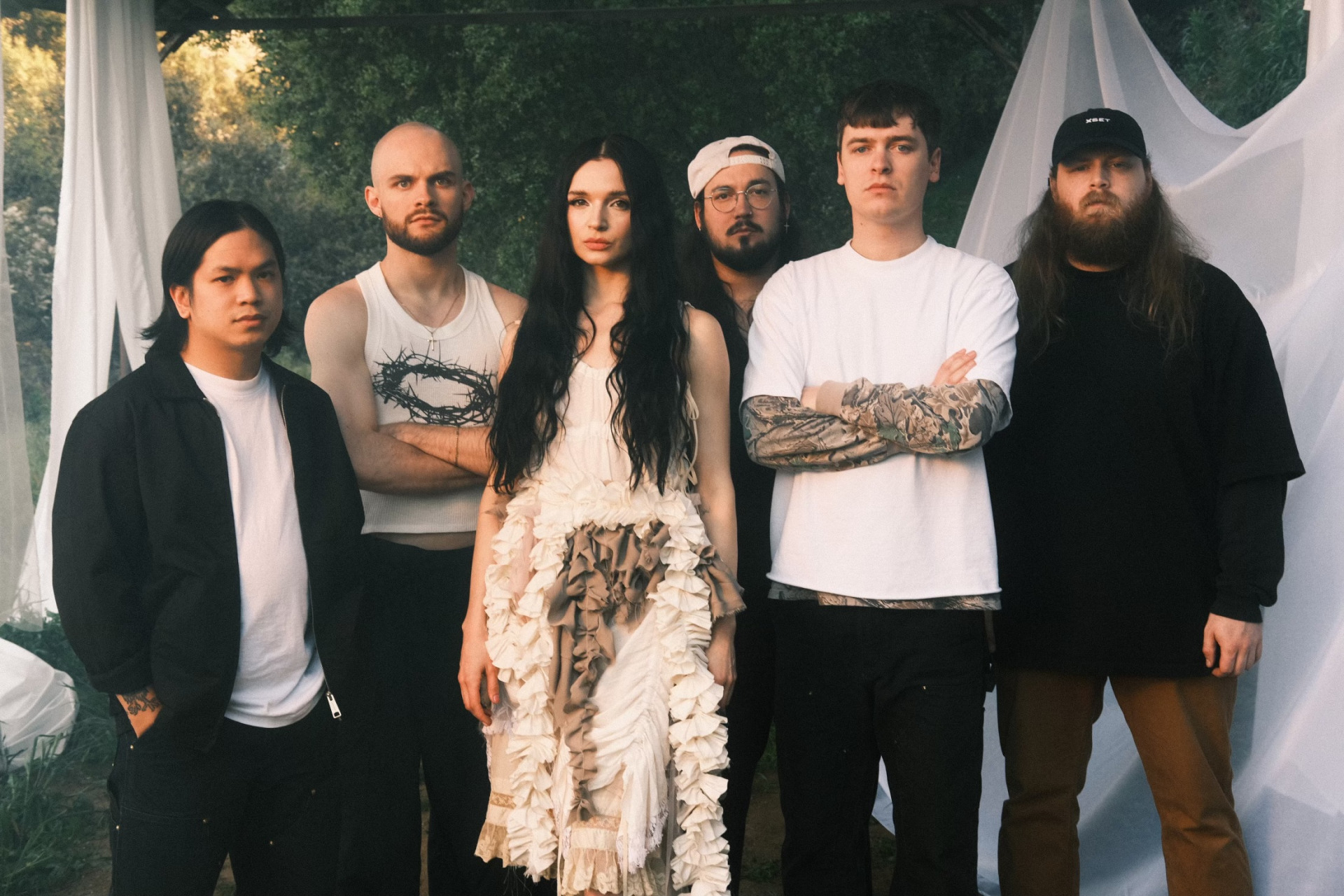
Interview: Kowloon Walled City's Scott Evans
. . .
If you happened to compile your best-of list before December 5th this year, you did it wrong. That was the day Bay Area-based Kowloon Walled City dropped Container Ships, the most vital and ambitious collection of modernist sludge since Harvey Milk’s A Small Turn of Human Kindness. Like that record, KWC’s latest breathes and lurches along its own axis, taking time to generate atmosphere without neglecting the importance of a good pummel. Container Ships is a miracle of contradictions: it’s an expansive, cinematic listen that clocks in at a punchy 35 minutes; it’s abstract and thematically elusive yet catchy as hell; it’s also a complete banger of a heavy rock album with plenty of texture to spare. It all sounds crystal clear, too, meticulously engineered by guitarist/vocalist Scott Evans who lends his hand in that capacity to a host of other bands.
This record caps off a relatively slow year for the band who mostly surfaced for one-off local gigs and three nights opening for the fabled Sleep reunion last summer. Families, careers, and other creative endeavors abated long enough for them to follow up their last release, 2009’s Gambling on the Richter Scale. They’re not sweating that glacial itinerary, either. The Kowloon fellas are of that decidedly contemporary persuasion that the key to happiness is not making your band your life.
I recently caught up with Scott Evans in SF, both of us fighting exhaustion through a discursive conversation about guitar tunings, intention, and Queensryche over a jukebox soundtrack that included, Rush, Kansas and a (bad) cover of Hendrix’s “Hey Joe”.
. . .
First off, congrats on the record. I haven’t heard a collection of smart rock like this in a while. Was there a vision for how you approached Container Ships?
Sort of. I always think it’s important for bands to have a mission statement that they follow. We had been doing the same thing for a while and we wanted to go in a direction that was just slower and more of a bummer. It wasn’t quite clicking and then Jason [Pace, former KWC guitarist] left and Jon [Howell, current guitarist] came on board.
So was that a case of the new blood helping things or was Jason not into the direction?
Jason was totally into the direction. He was just burnt out on being in bands. He needed a big change so he moved to Seattle. It was a good thing for both of us.
Now he sits around drinking craft beer and hanging with Chris DeGarmo [former Queensryche guitarist. He left the band just after they peaked in popularity and became a commercial pilot in Seattle. I’m goofing here.]
Dude, I just saw an ad for Queensryche. They’re billing themselves as “Queensryche featuring Geoff Tate” [Laughs].
So anyway Jon came in and he was really feeling the new direction. That guy is just a font of ideas.
Do you do most of the writing?
I come in with a lot of the core songwriting and we refine it together. But there were a number of things that Jon brought in that we would then mull over together. He’ll bring in something like he’d play in his own band, Tigon–really complex stuff. And I’d be like, “what if we just played this one part four times?”
It’s a vast evolution from Gambling… It sounds like Container Ships is four albums later.
Really?
Yeah, it moved on from being guys having fun and celebrating their influences to really digesting those influences and pooping out a perfect Kowloon turd. [Laughs]
Well, what more needs to be said? [Laughs] I’ve heard that kind of thing said by others. I think it’s the kind of thing where we had been working towards this direction for a while without realizing it, so we don’t think of it as a big evolution. Like when someone notices you’ve lost weight because they don’t see you every day.
It’s so funny–whenever you talk about intention with bands, they’ll usually get defensive. Like: “we didn’t intend to do shit!” [Laughs]
Yeah, I know. I don’t want to undersell it. We made a bunch of conscious decisions. We changed our guitar tones quite a bit. I changed the way I recorded the band and we leaned into this shoegaze kind of thing really purposefully.
It works. It’s this heavy record that’s also really dreamy and meditative.
That’s totally what we were trying to accomplish.
What are you guys tuning to?
Drop A# [from low to high, this is: A#, F, A#, D#, G, C]. That’s what we’ve always tuned to.
So that’s how come all the major sixths?
Yeah, cuz it’s an easy reach.
That’s the Godflesh chord. Especially on Selfless.
He’s been using that forever. He also relied on a lot of major thirds.
One thing that might be interesting to you as a guitar player, is Jon. He’s a really good guitar player–very technical. His default hand position is like this [arches his hand so that his fingers are diagonal with frets] whereas most guitarists default to this [straightens his hand so that fingers are parallel with frets] so that they can reach barre chords more easily. So a lot of the stuff he writes will be because he’s not beholden to those typical patterns. There’s a song where I’ll tune up the dropped string but he’ll stay in the drop [and adapt to the difficulty] because that’s Jon.
Tell me about that clean crunch tone at the intro to “Cornerstone”.
That’s Jon. His amp was on the fritz so he was using mine, a Peavey VTM 60. Kim Thayil used one at one point. We put it on the clean channel with the preamp knob dimed [turned to 10]. So it’s a dirty clean tone. That’s the core of what we’re doing. Then we’re pushing that with pedals.
What pedals?
Our friend Ben Adrian made this pedal called the Kowloon Walled Bunny that mimics the broken circuitry of my old MXR Distortion +.
Actually, Jon had this Les Paul with P90s in it and I was trying to mimic that sound. We sort of met somewhere in the middle.
[Fleetwood Mac’s “Gold Dust Woman” comes on the jukebox]
Seriously fuck anyone who says Fleetwood Mac is all about Lindsey Buckingham. It’s all about Stevie Nicks!
And Christine McVie! [We dork out here about Fleetwood Mac for a moment. We then dramatically change gears.] Are you familiar at all with Khanate?
Sort of. Actually there’s this band called Barkmarket who released a record in the ’90s called L. Ron. It wasn’t on my radar then but long after Kowloon was a thing, someone pointed it out to me and I thought, “oh shit, this is what we’re trying to do in terms of [guitar] tone.”
You were saying you had mixed this record in your head before you sat down to mix it.
Yeah, for sure. And we decided to record in a good drum room finally. We recorded at Sharkbite Studios [in Oakland].
That makes a big difference.
Yeah, I mean, we used to record in our practice space. This material had a lot of space in it and we wanted that control over the sound rather than being all bleed-y and blown-out sounding. We still played everything live but the drums were isolated. We spent a little more time with guitar tones. It’s a million little decisions–no one big thing.
So it suited the material but recording in a studio as opposed to a practice space was also a more humane thing. The last time we recorded there were eighteen different amp rigs in our space that all the bands shared. We played Tetris with all those rigs, using them as gobos [for sound isolation]. It was hell.
You guys all have jobs, families, and lives outside of music and you have no real horse in the game of this band becoming wildly successful. Does that make it a challenge when it’s time to do the band, to take it seriously and give it your all? Is there still an element of sacrifice involved?
I am thinking about and working on the band A LOT. It’s not like check-in, check-out. It’s a constant grind in the back of my mind. It’s always in there, in the background. I think other people can swap it out and back in but that’s not how I work.
We’ve also been practicing and writing every week since our last record. Since I book a lot of the shows and write a lot of the music, that tends to fall on me.
Then when we play shows and do little tours, there has to be an aligning of the stars. I was supposed to be watching my kids when those Sleep shows came up last Summer. So there was some juggling and then the next day, I was on an Amtrak with my kids at 7 AM. Thankfully, my wife is totally amazing and supportive.
It takes a pound of your flesh, though every time you plan something like a tour.
Yeah, this sort of thing was a lot easier when I was 25. It’s a lot of work to play to a hundred dudes, but we make it happen.
HEAR CONTAINER SHIPS
BUY CONTAINER SHIPS
iTunes (MP3)
Amazon (MP3)
Bandcamp (Digital download)
Kowloon Walled City (LP, CD)
. . .











